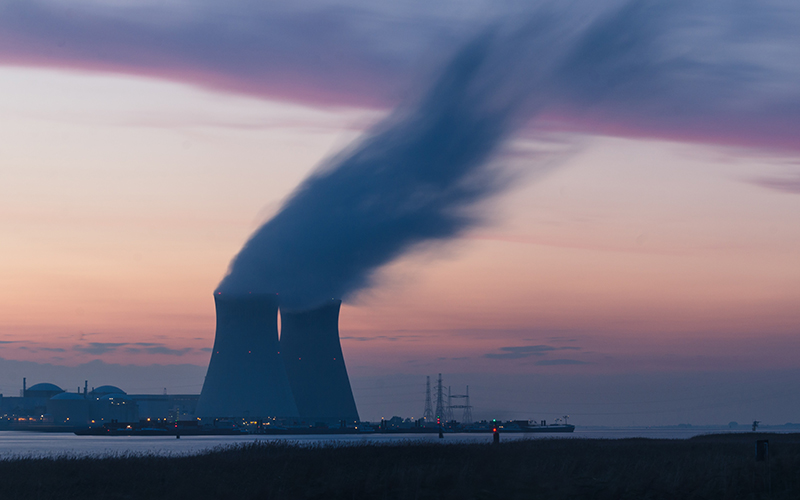 Japan
Japan Japan earthquake: Oil leakage from Shika nuclear power plant was five times higher
Tokyo/IBNS: The oil leakage due to earthquake from Shika nuclear power plant in Japanese prefecture Kishikawa was five times higher than the initial amount, the plant said as quoted by various media.
The Shika power station is 65 kilometers away from the epicentre.
In a press conference last Friday, the company said the oil leakage was about 19,800 litres.
Hundred litres of oil was leaked from another transformer of Unit 2 in the plant.
The Noto Peninsula in Japan's Ishikawa Prefecture has recorded 1,214 tremors rated at least 1 on the seven-point seismic intensity scale in the week that followed a powerful earthquake that jolted the region on New Year's Day, the NHK broadcaster reported on Monday.
The Japan Meteorological Agency warned that strong tremors were expected in the week after the quake.
The scale of devastation is yet unclear, primarily in the cities of Wajima and Suzu, as rescuers are unable to reach some areas due to damaged roads and communications.
The situation is further exacerbated by snow and cold temperatures of 0 to 4 degrees Celsius (32 to 39.2 degrees Fahrenheit) as thousands of households were left without electricity and water. Up to 12 and 9 centimeters (4.7 and 3.5 inches) of snow fell in Suzu and Wajima respectively, increasing the risk of building collapse amid seismic activity. The snowfall is also delaying efforts to repair roads, which is critical for delivering relief aid to the quake-stricken areas.
On January 1, a powerful 7.6-magnitude earthquake, followed by a series of aftershocks, struck near the city of Suzu on the Noto Peninsula in Ishikawa Prefecture.
The tremors also led to buildings collapsing and left over 23,900 households without power, although no nuclear power plant failures were registered. The quake became the most powerful for the Noto Peninsula region since records began in 1885.
At least 161 people died as a result of the disaster and 103 remain unaccounted for. The earthquake also forced more than 28,800 people in Ishikawa to evacuate to government shelters. Japan's Self-Defence Forces deployed 5,900 rescue workers to assist with disaster relief efforts.
Support Our Journalism
We cannot do without you.. your contribution supports unbiased journalism
IBNS is not driven by any ism- not wokeism, not racism, not skewed secularism, not hyper right-wing or left liberal ideals, nor by any hardline religious beliefs or hyper nationalism. We want to serve you good old objective news, as they are. We do not judge or preach. We let people decide for themselves. We only try to present factual and well-sourced news.







